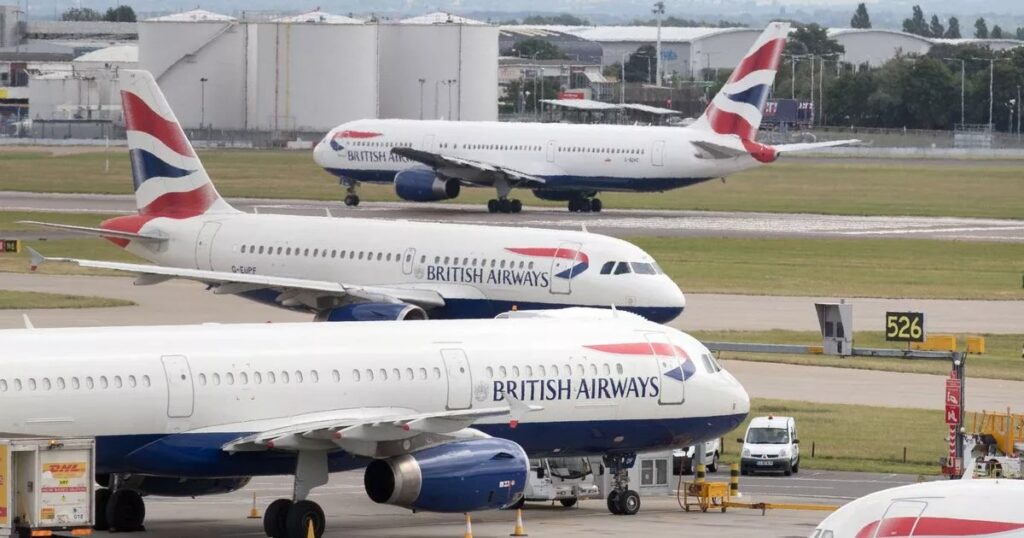
The airport plans to distribute 164 cancellations among airlines to prevent diversions until Sunday
This week, thousands of passengers traveling to and from Gatwick will face flight cancellations due to staffing shortages in air traffic control. Gatwick swiftly enforced a daily limit of 800 flights taking off or landing starting Monday. The airport intends to distribute the 164 cancellations proportionally among airlines until Sunday, with easyJet passengers likely to be the most affected, as the carrier operates nearly half of all Gatwick flights. Travelers on Friday are at the highest risk of disruption, with 865 scheduled departures. Announcements regarding reductions by the airport and airlines are anticipated on Tuesday.
Gatwick’s decision aims to minimize last-minute cancellations and disorder, allowing for more proactive passenger rebooking. Recent weeks have seen numerous flight disruptions, including cancellations, delays, and reroutes, due to unexpected staff absences within the air traffic control team. The West Sussex airport had to apologize to thousands of travelers whose plans were disrupted when more than 40 flights were affected by these absences. It is estimated that around 30% of Nats employees at Gatwick, the contracted air traffic control service provider, are either ill or unable to fulfill their full duties. Gatwick’s CEO, Stewart Wingate, expressed that despite repeated assurances from Nats, the situation had not improved following the implementation of temporary air traffic control restrictions earlier in the month.
He mentioned that the decision was challenging but necessary for Gatwick to provide assurance to both airlines and passengers.
A spokesperson from Nats stated, “Considering the high levels of illness we’ve witnessed in recent weeks, we consider it a responsible step to limit the number of flights this week in order to minimize the risk of daily disruptions for airport passengers.”
Nats also emphasized their ongoing efforts to train and recruit staff as quickly as possible but noted, “Even for experienced air traffic controllers, it takes a minimum of nine months to qualify at Gatwick, and only a few manage to do so, given Gatwick’s high traffic volume and complexity.”
Johan Lundgren, the CEO of easyJet, expressed, “While it is unfortunate that Gatwick airport has to implement a temporary capacity limit, we believe it is the correct action to prevent last-minute cancellations and delays.”
Gatwick airport and Nats must collaborate on a comprehensive, long-term strategy to enhance the reliability of air traffic control at Gatwick, ensuring it meets the necessary standards. We continue to advocate for a more extensive assessment of Nats, addressing broader concerns to ensure the delivery of reliable services to present and future passengers.
Following the disruptions at Gatwick earlier this month, Ryanair’s outspoken CEO, Michael O’Leary, called for the resignation of Nats’ CEO, Martin Rolfe, citing a “clear failure to adequately staff UK air traffic control.”
Stewart Wingate did not endorse this demand but urged Rolfe to exert maximum effort in minimizing disruptions and to intensify their efforts to enhance the tower’s resilience. He emphasized, “They must fulfill the commitment they made when we awarded them the contract, not only for our benefit but also for the airlines and, most importantly, for the passengers.”
Last summer, Heathrow airport implemented a daily passenger limit of 100,000 due to challenges coping with the surge in post-pandemic travel. This resulted in lengthy queue times for travelers, ground staff shortages, and thousands of flight cancellations. The daily limit remained in effect from July through the end of October as the airport worked on hiring and training tens of thousands of additional staff.



